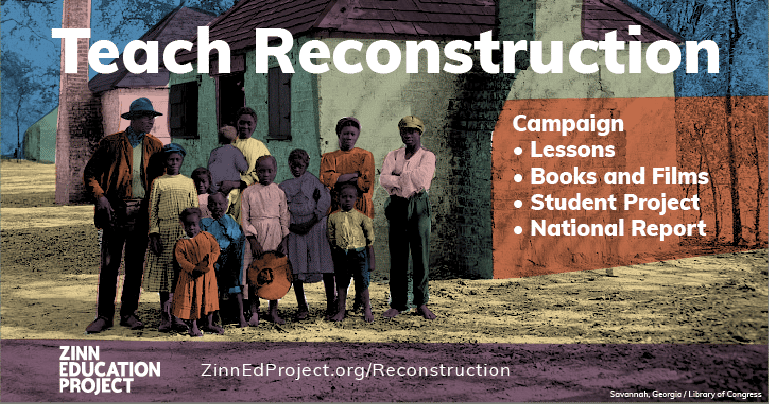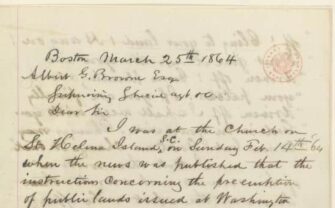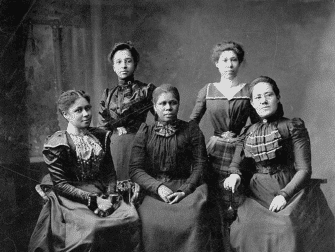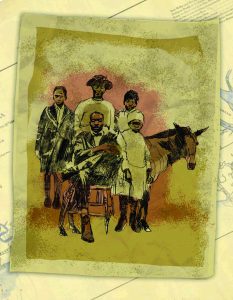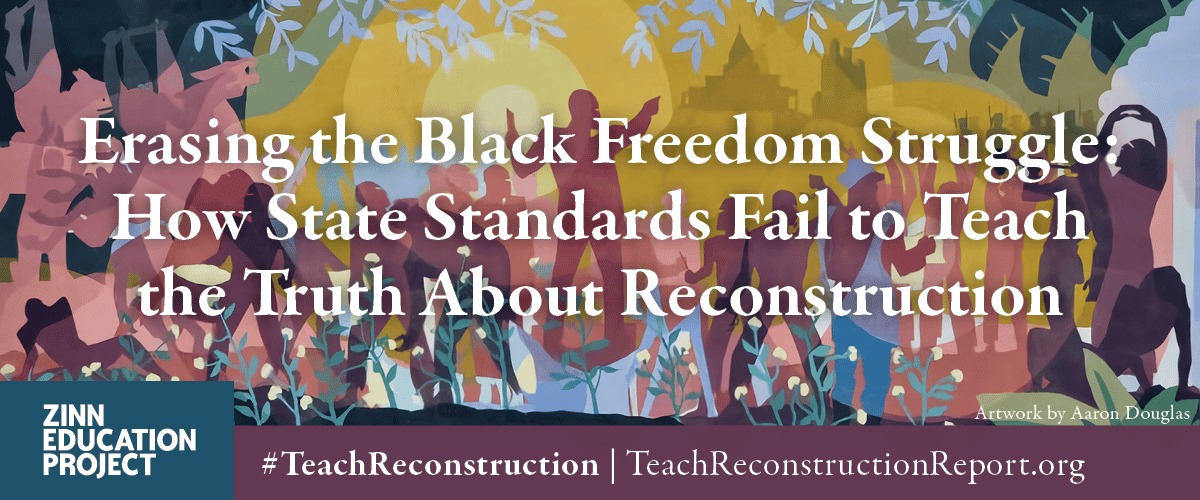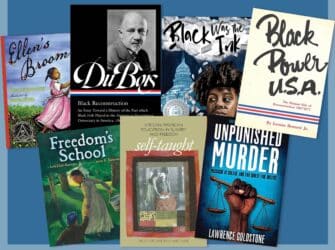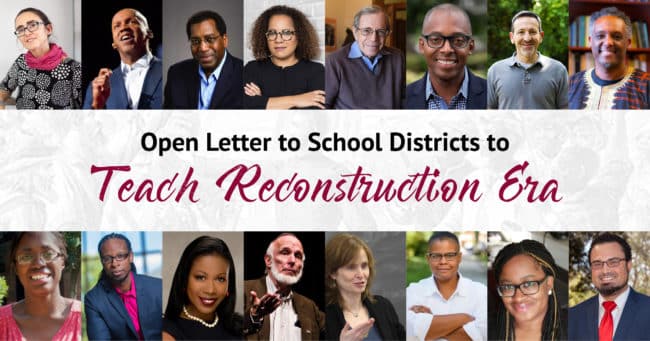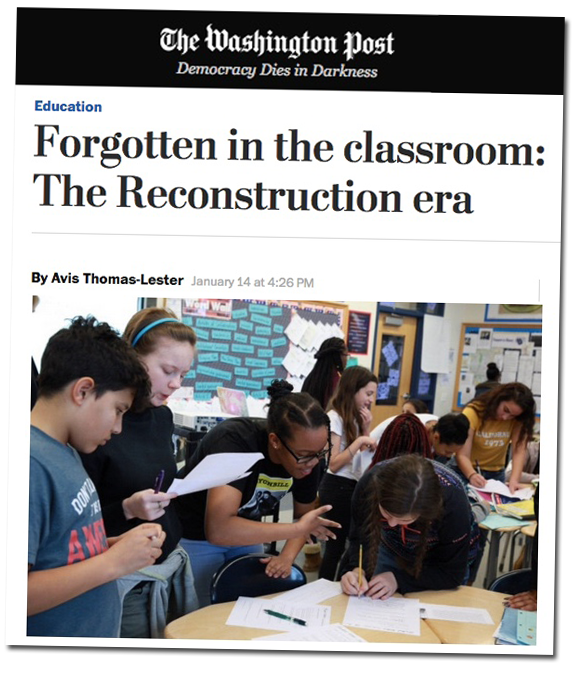Reconstruction, the era immediately following the Civil War and emancipation, is full of stories that help us see the possibility of a future defined by racial equity. Yet the possibilities and achievements of this era are too often overshadowed by the violent white supremacist backlash. Too often the story of this grand experiment in interracial democracy is skipped or rushed through in classrooms across the country. Today — in a moment where activists are struggling to make Black lives matter — every student should probe the relevance of Reconstruction. Our campaign aims to help teachers and schools uncover the hidden, bottom-up history of this era.
We offer lessons for middle and high school, a national report, a student campaign to make Reconstruction history visible in their communities, and an annotated list of recommended teaching guides, student friendly books, primary document collections, and films. This campaign is informed by teachers who have used our Reconstruction lessons and a team of Reconstruction scholars.
Sections:
Why • Lessons • National Report • Textbook Critique • Petition • Share Your Story • Related Resources • Student Project • Open Letter • Support • Advisors • In the News
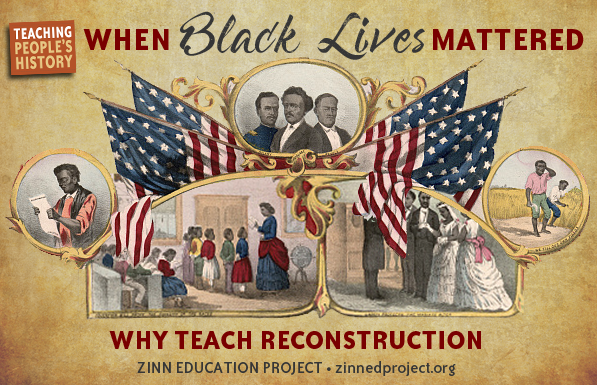 When Black Lives Mattered: Why Teach Reconstruction
When Black Lives Mattered: Why Teach Reconstruction
Reconstruction, the era immediately following the Civil War and emancipation, is full of stories that help us see the possibility of a future defined by racial equity. Though often overlooked in classrooms across the country, Reconstruction was a period where the impossible suddenly became possible.
Reconstructing the South: What Really Happened
A follow-up lesson to “Reconstructing the South,” using primary source documents to reveal key outcomes of the Reconstruction era.
Teaching the Reconstruction Revolution: Picturing and Celebrating the First Era of Black Power
A lesson that help students understand, imagine, and celebrate the Reconstruction period as the first era of Black power in the United States.
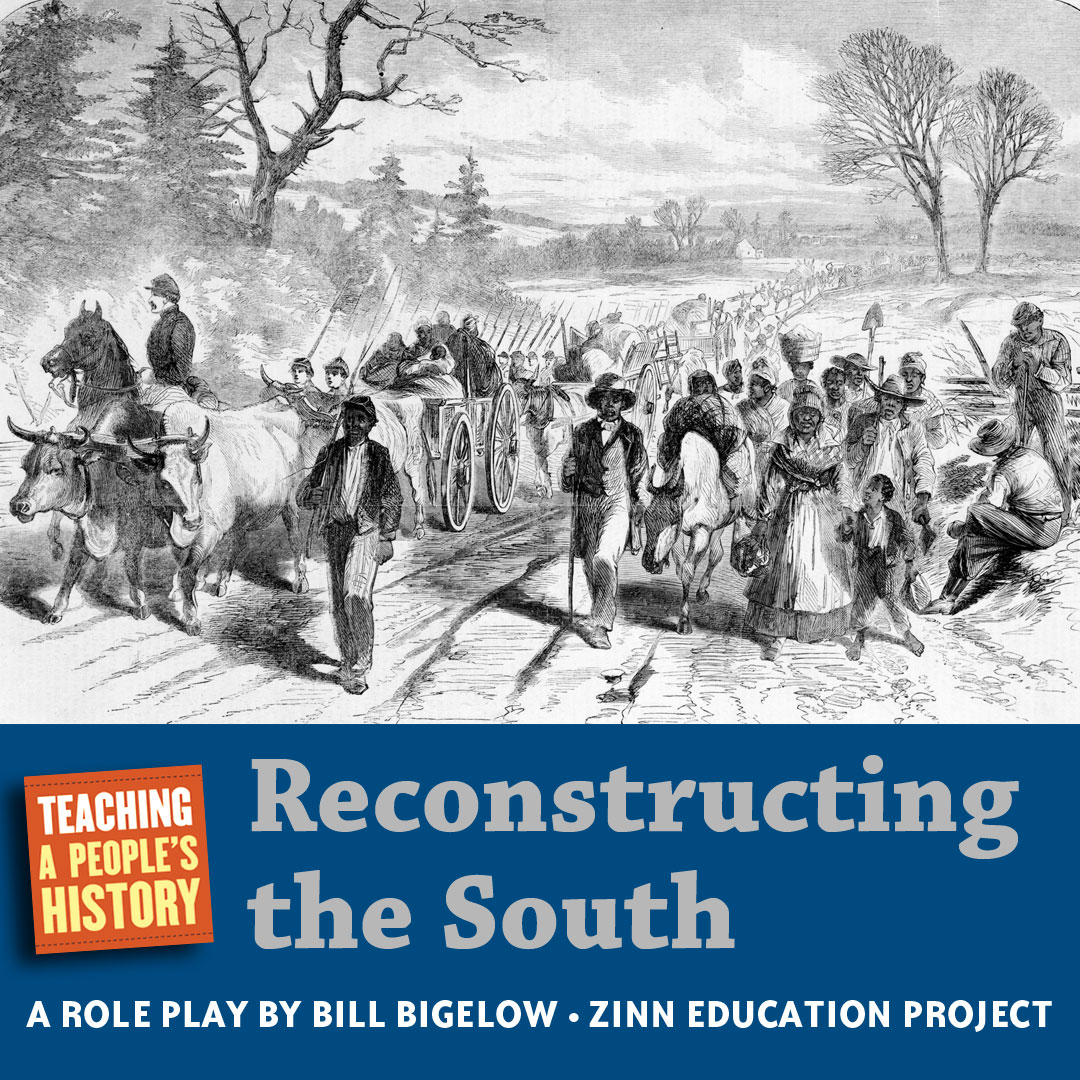 Reconstructing the South: A Role Play
Reconstructing the South: A Role Play
This role play engages students in thinking about what freedpeople needed in order to achieve — and sustain — real freedom following the Civil War. It’s followed by a chapter from the book Freedom’s Unfinished Revolution on what would happen to the land in the South after slavery ended.
Teacher Comments
“I found the lesson plan to be a valuable addition to my teaching about this era. The students were engaged in their roles and, later, more engaged than ever before in finding out what choices were actually made the years following the Civil War.” — Amy Grant, a middle school social studies teacher, Dexter, Michigan
▸ Read more teacher comments.
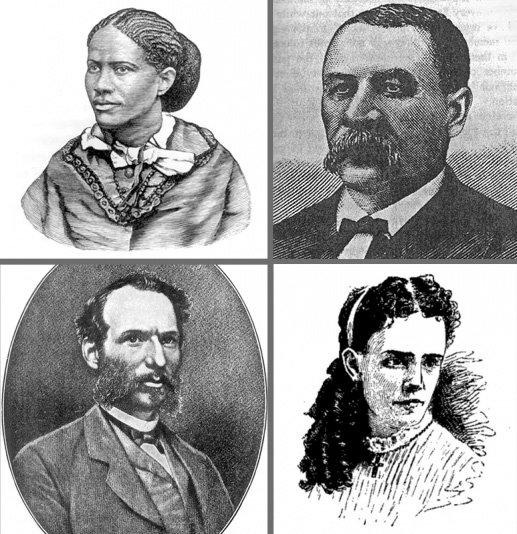
Clockwise: Frances Harper, Isaac Myers, William Sylvis, and John Roy Lynch are a few of the people featured in the role play.
When the Impossible Suddenly Became Possible: A Reconstruction Mixer
A mixer role play that explores the connections between different social movements during Reconstruction, introducing students to individuals in the labor movement, women’s rights, and voting rights movements that followed the Civil War and their attempts to build alliances with one another.
40 Acres and a Mule: Role-Playing What Reconstruction Could Have Been
This multimedia, creative role play introduces students to the ways African American life changed immediately after the Civil War by focusing on the Sea Islands before and during Reconstruction.
Many historians term this post-war experiment in grassroots democracy and Black self-determination that occurred in the coastal Sea Islands a “rehearsal” for Reconstruction. But the Sea Islands experiment was more than a rehearsal; subsequent Reconstruction plans lacked the key ingredient that made it revolutionary: the redistribution of land.
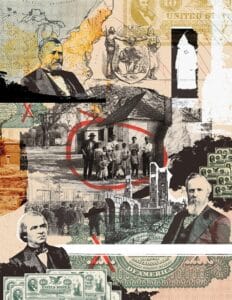 Who Killed Reconstruction? A Trial Role Play
Who Killed Reconstruction? A Trial Role Play
A role play about the demise of Reconstruction that helps students get beyond the question “Was Reconstruction a success or failure?”
This trial role play encourages students to take a broader view of Reconstruction’s demise looking at the role of the major political parties and their wealthy backers, the racism of poor white people, and the systems of white supremacy and capitalism.
More lessons: The Reconstruction Era and the Fragility of Democracy from Facing History and Almost Emancipated: Reconstruction from Teach Rock.

The Zinn Education Project produced a national report, “Erasing the Black Freedom Struggle: How State Standards Fail to Teach the Truth About Reconstruction,” on the teaching of the Reconstruction era, including a state-by-state assessment.
The report, released in January of 2022, examines state standards, course requirements, frameworks, and support for teachers in each state. It also includes stories about creative efforts by districts and/or individual teachers in each state to teach outside the textbook about Reconstruction.

One cannot study Reconstruction without first frankly facing the facts of universal lying,” explained scholar W. E. B. Du Bois in 1935. Spurred by that directive, we offer Five Ways Textbooks Lie About Reconstruction by Mimi Eisen as an addition to our national report, Erasing the Black Freedom Struggle.
![]()
Sign the petition urging school boards to examine how much time is dedicated to teaching the Reconstruction era in kindergarten through 12th grade, make a plan to increase it, and ensure that teaching materials and curricula in schools reflect the everyday people who powered these movements.

Stories from the classroom can inform and inspire more teachers to use lessons on reconstruction. We invite you to share your story. Selected responses will be posted at the Zinn Education Project website.

The “Make Reconstruction History Visible” mapping project is an opportunity for students and teachers to identify and advocate for recognition of Reconstruction history in their community. This helps students learn about this vital era in U.S. history while also playing an active role in giving visibility to an era that has been hidden or misrepresented for too long.
For this project, students (individually or as a class) identify and document Reconstruction history such as schools, hospitals, election sites, Freedmen’s Bureau offices, Black churches, Black newspapers, Black owned businesses, prominent individuals, organizations, key events, and more. Learn how to participate.
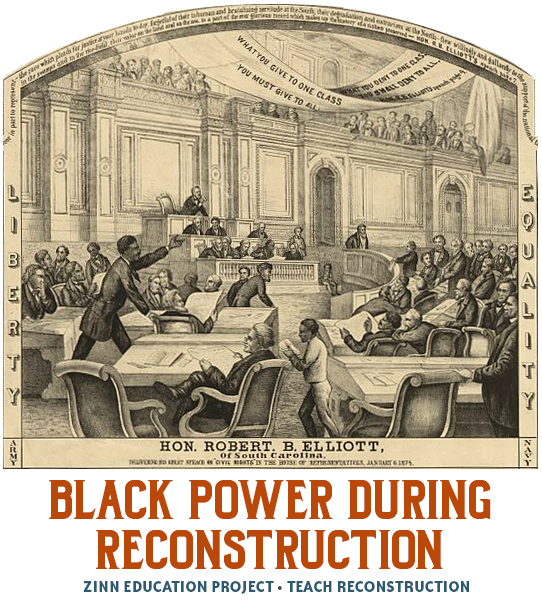 The Other ’68: Black Power During Reconstruction
The Other ’68: Black Power During Reconstruction
Article By Adam Sanchez
From the urban rebellions to the salute at the Olympics, commemorations of 1968 — a pivotal year of Black Power — have appeared in news headlines throughout this anniversary year. Yet 2018 also marks the 150th anniversary of 1868 — the height of Black Power during Reconstruction. Read more.
Related Resources
Readings, primary documents, and films for classrooms about the Reconstruction era.

The Teach Reconstruction campaign is made possible by donations from individuals. Please contribute today so that more teachers receive free lessons on Reconstruction history and more students can participate in the Make Reconstruction History Visible project. Donate now!
- Shawn Leigh Alexander is a professor and the chairperson of African and African American Studies and the director of the Langston Hughes Center at the University of Kansas. Alexander is the author of An Army of Lions: The Civil Rights Struggle Before the NAACP, and editor of Reconstruction Violence and the Ku Klux Klan Hearings.
- Derek W. Black is a professor of law and the Ernest F. Hollings Chair in Constitutional Law at the University of South Carolina. He is the author of Schoolhouse Burning: Public Education and the Assault on American Democracy.
- David Blight is a professor of history at Yale University and the director of the Gilder Lehrman Center for the Study of Slavery, Resistance, and Abolition at Yale. Blight is the author of Frederick Douglass: Prophet of Freedom, A Slave No More: Two Men Who Escaped to Freedom, and Race and Reunion: The Civil War in American Memory.
- Greg E. Carr is an associate professor of Africana Studies, the chair of the Department of Afro-American Studies at Howard University, and an adjunct professor at the Howard School of Law. Carr is a co-founder of the Philadelphia Freedom Schools Movement.
- Michael Charney is a retired public school social studies teacher with over 30 years of experience in education, labor organizing, and education policy. He provides strategic guidance and support for the Teach Reconstruction campaign. Charney wrote curriculum guides to support student organizing including “Fulfilling the Promise of America: The Struggle for Voting Rights,” “The Minimum Wage and the Youth Vote (PDF),” and the “Present as History: A Look into the Origins of the Cleveland School Desegregation Case.”
- Gregory P. Downs is a professor of history at the University of California, Davis, and the author of After Appomattox: Military Occupation and the Ends of War. Downs is also a co-author of the National Parks Service’s theme study, The Era of Reconstruction, 1861–1900.
- Jim Downs is the Gilder Lehrman NEH Professor of Civil War Era Studies at Gettysburg College. Downs is the author of several books including Sick from Freedom: African-American Illness and Suffering during the Civil War and Reconstruction and Beyond Freedom: Disrupting the History of Emancipation, which he co-edited with David Blight.
- Hilary N. Green is a professor of history, Africana Studies Department, at Davidson College. Green is the author of Educational Reconstruction: African American Schools in the Urban South, 1865–1890.
- Steven Hahn is a professor of history at New York University and the author of A Nation Under Our Feet: Black Political Struggles in the Rural South from Slavery to the Great Migration.
- William Loren Katz was the author of numerous books on U.S. history for middle school students, including An Album of Reconstruction. (In Memoriam.)
- Chenjerai Kumanyika is a researcher, journalist, artist, and assistant professor in Rutgers University’s Department of Journalism and Media Studies. He is also the co-executive producer and co-host of Uncivil, Gimlet Media’s podcast on the Civil War.
- James Loewen was a professor of sociology at the University of Vermont and the author of several books including Lies My Teacher Told Me, Lies Across America: What Our Historic Sites Get Wrong, and The Confederate and Neo-Confederate Reader: The “Great Truth” about the “Lost Cause”. (In Memoriam.)
- Kate Masur is a professor of history at Northwestern University and the author of Until Justice Be Done: America’s First Civil Rights Movement, From the Revolution to Reconstruction and An Example for All the Land: Emancipation and the Struggle Over Equality in Washington, D.C. Masur is also the co-author of the National Parks Service’s theme study, The Era of Reconstruction, 1861–1900.
- Jeremy Nesoff is the associate program director for Facing History’s Leadership Academy. Among his roles is leading work connected to the curriculum unit The Reconstruction Era and The Fragility of Democracy.
- Paul Ortiz is the director of the Samuel Proctor Oral History Program at the University of Florida. Ortiz is the author of Emancipation Betrayed: The Hidden History of Black Organizing & White Violence in Florida from Reconstruction to the Bloody Election of 1920 and An African American and Latinx History of the United States.
- Tyler Parry is an assistant professor of African American and African Diaspora Studies at the University of Nevada, Las Vegas. He is the author of “Black Radicalism and the ‘Tuition-Free’ University,” an article exploring the profound impact South Carolina’s majority Black Reconstruction era legislature had on public education.
- Tiffany Mitchell Patterson is a manager of social studies at District of Columbia Public Schools (DCPS). Prior to joining the central services social studies team at DCPS, she served as an assistant professor of secondary social studies at West Virginia University. She taught middle school social studies for 10 years in Washington, D.C., and Arlington, Virginia.
- David Roediger is the foundation distinguished professor at the University of Kansas. He is the author of several books on race and class in the U.S. including Seizing Freedom: Slave Emancipation and Liberty for All.
- Mark Roudané is a retired early childhood teacher. He curates the digital archive of his great, great grandfather, Charles Roudanez, who founded the New Orleans Daily Tribune, the first daily Black newspaper during Reconstruction.
- Manisha Sinha is the James L. and Shirley A. Draper Chair in American History at the University of Connecticut. She is the author of The Counterrevolution of Slavery: Politics and Ideology in Antebellum South Carolina and The Slave’s Cause: A History of Abolition.
- Stephen West is an associate professor of history at the Catholic University of America. West is author of From Yeoman to Redneck in the South Carolina Upcountry, 1850–1915 and co-editor of Freedom: A Documentary History of Emancipation, 1861–1867, series 3, volume 2, Land and Labor, 1866–1867.
- Kidada E. Williams is an associate professor of history at Wayne State University. Williams is the author of They Left Great Marks on Me: African American Testimonies of Racial Violence from Emancipation to World War I and the producer and host of Seizing Freedom, VPM’s podcast on Black people’s quest for liberation, progress, and joy in the United States.
![]()
Educator Survey
Our national report will be continuously updated. Teachers and other staff at the state, district, or classroom level are invited to complete one of the short surveys below. Respondents receive a subscription to Rethinking Schools magazine in appreciation for their time.
Teacher & Other School Staff SurveyStaff & District Leader Survey

